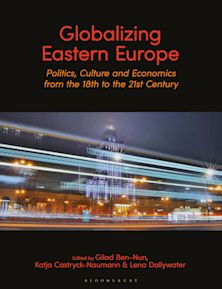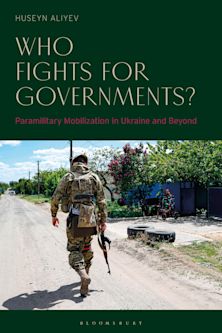Conflict Areas in the Balkans
This product is usually dispatched within 2-4 weeks
- Delivery and returns info
-
Flat rate of $10.00 for shipping anywhere in Australia
Description
The situation in the Balkans, such as the solution to the status of Kosovo, is currently the largest international political problem in Europe, with the potential to burst into a world crisis regarding the Eastern - Western relations. On the other hand, a successful solution to the problem in the Balkans could serve as a model for solving the Muslim - Christian tensions elsewhere in the world. It is the intention of this book to contribute proposals for solutions to the problems of Balkans. The starting principle for the solutions to be effective is that they should come in a natural way from the people below and should not be enforced by the political elites from above. Based on self-determination of nations as a starting principle, they should encourage intra-regional cooperation among the regional entities (economic, cultural, sport, as a basis for political, social understanding and cooperation); secondly, accelerate their economic, political and social development and thirdly, as a final step enable the inclusion of the Balkan countries into the European Union.
Table of Contents
Birgul Demirtas
Chapter 1. Muslims Turks of Western Thrace and Turkish-Greek Relations: The Triadic
Relational Nexus
Gizem Cakmak & Ali Huseyinoglu
Chapter 2. What is in a Name: A Social Constructivist Analysis of Macedonian Conflict
Bezen Balamir Coskun
Chapter 3. Intra-State Conflict In The Post-Cold War Balkans: The Macedonian Case And Consociationalism
Didem Ekinci
Chapter 4. Political Status of Kosovo And Its Impact On The Regional Affairs Of Southeastern Europe
Can Kakisim
Chapter 5. The Frozen Conflict in The Consociational System Of Bosnia
Rasim Ozgur Donmez & Burcu Albayrak Donmez
Chapter 6. Problem of The Political Status Of Transnistria In Moldova
Gokturk Tuysuzoglu
Chapter 7. A Problem Between Albania and Greece: Cham Albanians
Sibel Turan & Demet Senbas
Chapter 8. National Minorities in the Balkans and the Problem of Representation:Albanian Minority in Presevo Valley
Pinar Erkem
Chapter 9. Border Conflict in Croatia-Slovenia Relations: Piran Bay Issue
Pinar Yurur
Chapter 10. A Possible Drawback in Romanian-Hungarian Relations: Historical Region of Transylvania
Selim Kurt
Chapter 11. Divided Sandzak: One Region, Two States
Elif Hatun Kilicbeyli
Chapter 12. Maritime Disputes in the Aegean Sea
Arda Ozkan
Chapter 13. Turkey’s Foreign Policy in the Balkans: Soft Power in a Conflict Region
Begum Kurtulus
Chapter 14. Minority Problems in The Balkans And Etno-Federalism Debate
Tolga Cikrikci
Chapter 15. Women in War: Militarization of Women in Balkans
Gizem Bilgin Aytaç
Chapter 16. Energy Equation in the Balkan Peninsula
Cenk Ozgen
Chapter 17. Migration Issues in the Balkan States
Sanem Ozer
Product details
| Published | 27 Oct 2020 |
|---|---|
| Format | Hardback |
| Edition | 1st |
| Extent | 325 |
| ISBN | 9781498599191 |
| Imprint | Lexington Books |
| Illustrations | 6 tables; |
| Dimensions | 252 x 185 mm |
| Publisher | Bloomsbury Publishing |
Reviews

ONLINE RESOURCES
Bloomsbury Collections
This book is available on Bloomsbury Collections where your library has access.



































